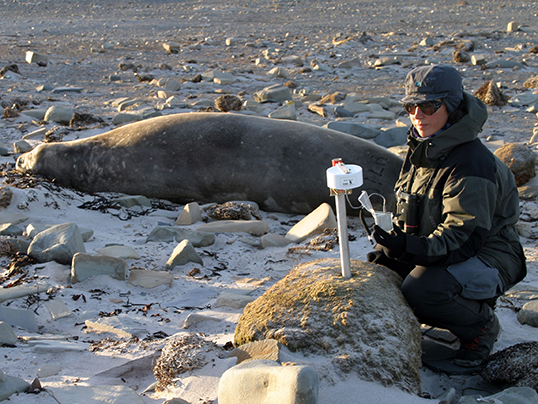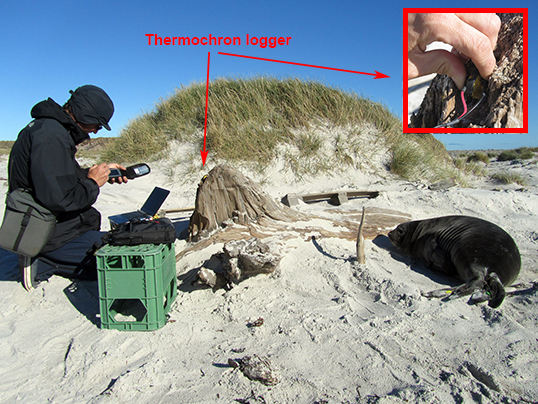Microclimate
We are very interested in the local variation of weather and climate. Weather conditions, like air temperature or wind speed, are greatly affected by the local topography and terrain elevation, and, therefore, may present huge changes even on a very small spatial scale. Those local variations, that are called microclimate, can have an importantant effect on the breeding phenology, behaviour and sociality of the species that we are studying. They can also determine the distribution of vegetation communities and the result of restoration actions and management policies.
We are studying the microclimate at Sea Lion Island by deploying simple dataloggers that can record parameters like air temperature and humidity over long period of times. The data collected by those loggers is representative of the local condition, and, therefore, can be more related to the distribution and behaviour of wildlife.

Downloading data from a Hobo datalogger; the seal on the background is an adult breeding female
For example, thermoregilation behaviour is very important for elephant seals, because they are much adapted to life at sea, and, therefore, suffer thermal stress while on land. We expect thermoregulation behaviour to be very linked to local microclimate, more than to the general weather conditions. Therefore, to study elephant seal spatial distrbution during the moult, and their thermoregulation behaviour, we need the local data that only a network of dataloggers can provide.

Deployment of a Thermochron datalogger; the seal on the right is a recently weaned pup
Until now, we used low-cost commercial dataloggers (Hobo, Thermochron). They are limited in sensor capabilites, and they are very inflexible, being closed-source hardware and software combination. We would to move to custom built dataloggers based on open-source hardware and software, and we are now experimenting with various designs based on the Arduino platform.
For more information please contact us by email at fil_esrg@eleseal.org. Thank you for your interest in our research projects !
